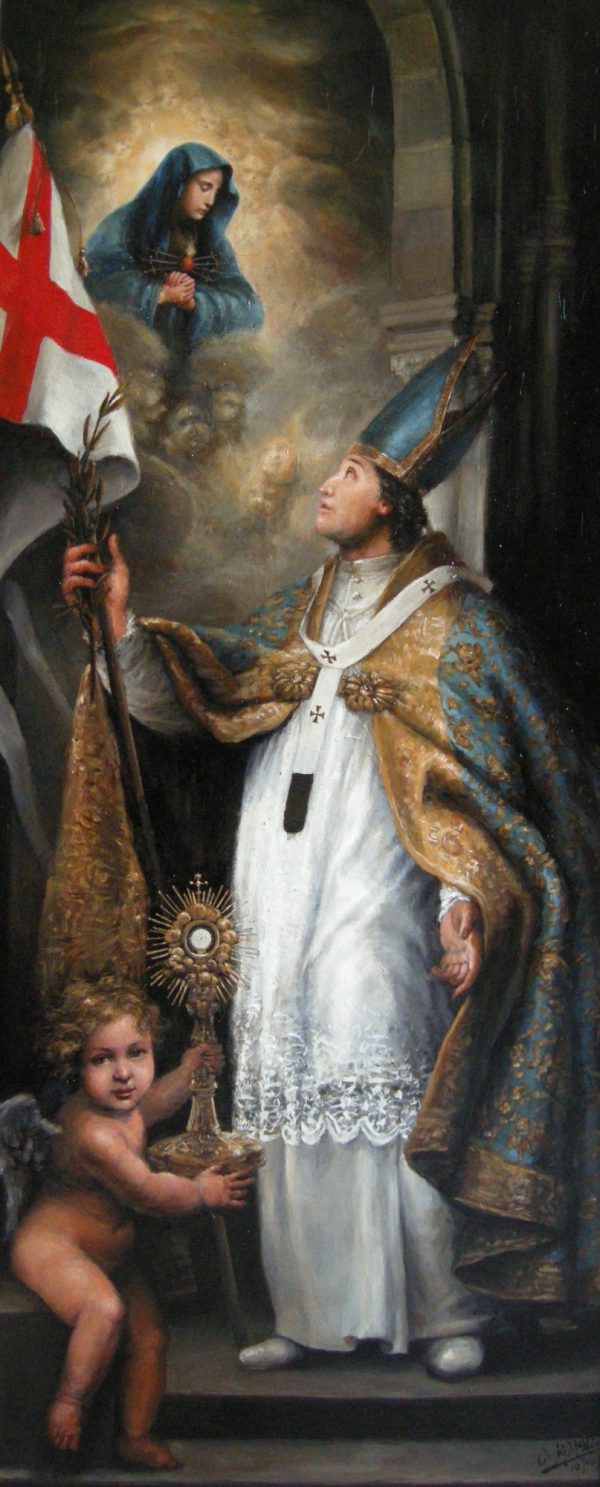St Norbert
The founder of our order, Our Holy Father St. Norbert, was born around the year 1080 in the town of Xanten, Germany – now situated close to the German border with the Netherlands. As a small child, he was sent to be educated by the cathedral chapter of St. Victor in Xanten, where he was later ordained a sub-deacon and became a canon of the cathedral. It was from here that he was called into service at the court of Emperor Henry V. Noted for his charm and good company, he was distracted by the pleasures of Court and, it may be said, was not so fervent in his spiritual life.
However, in 1115, Norbert was thrown from his horse and nearly killed. At that moment he heard the words of the Psalmist: “Turn away from evil and do good” (Ps. 33:14). He took this to be a warning from God, and immediately began to live a penitential life. He wandered the country, barefoot and dressed in coarse wool. In his ardent desire to serve the Lord, he was ordained deacon and priest on the same day. After this, Norbert continued to travel through the countryside, preaching the Word of God with passion, and denouncing heresy and the abuses of his fellow priests. This criticism did not win him many friends and he was condemned by some as a mad fool. But his work was approved by Pope Gelasius II, and later by Pope Calixtus II, who both gave him enthusiastic support. He was also encouraged to settle in one place and to found a religious community.
St. Norbert spent a great deal of time looking for the right place to build his monastery. He eventually chose a desolate valley in northern France, called Prémontré. Here, in a small chapel dedicated to St. John the Baptist, he had a vision of our crucified Saviour, who revealed to him that this abandoned wasteland would be the sight of a glorious monastery, which would attract souls by proclaiming with joy the truth of the Catholic faith. In 1121, St. Norbert laid the foundations of his new religious order. He remained faithful to his life as a canon and chose the Rule of St Augustine to be the guiding light of his new community. The new monastery quickly became known for its austerity of life, for its poverty, for its reverential liturgical prayer, and for its fidelity to the Augustinian ideal of community. As the monastery grew, Norbert continued his life of preaching and attracted many men and women to his new Order. He and his followers had a deep and unswerving faith in the Holy Sacrifice of the Mass, and showed great love and devotion to the Blessed Sacrament. Armed with this, they fearlessly preached against the errors of the day and brought about a great spiritual renewal among countless people.
On 25th July 1126, St. Norbert was consecrated Archbishop of Magdeburg, relinquishing the leadership of his Order, handing the reins to Blessed Hugh of Fosse. During his years as archbishop, Norbert constantly fought for the rights and liberty of the Church, and proved a devoted and loyal son of the Roman Pontiff. His labours and travels took a toll on his health, though, and he died in his cathedral city on 6th June 1134. The universal Church celebrates his feast on the anniversary of his death.
St. Norbert is usually depicted with the cross and pallium of an archbishop, holding a monstrance, which recalls his abiding devotion to Jesus Christ in the Blessed Sacrament, and an olive branch, calling to mind his mission as a peacemaker.
Download a longer version of the Life of St. Norbert.
Our Holy Father Norbert, pray for us
